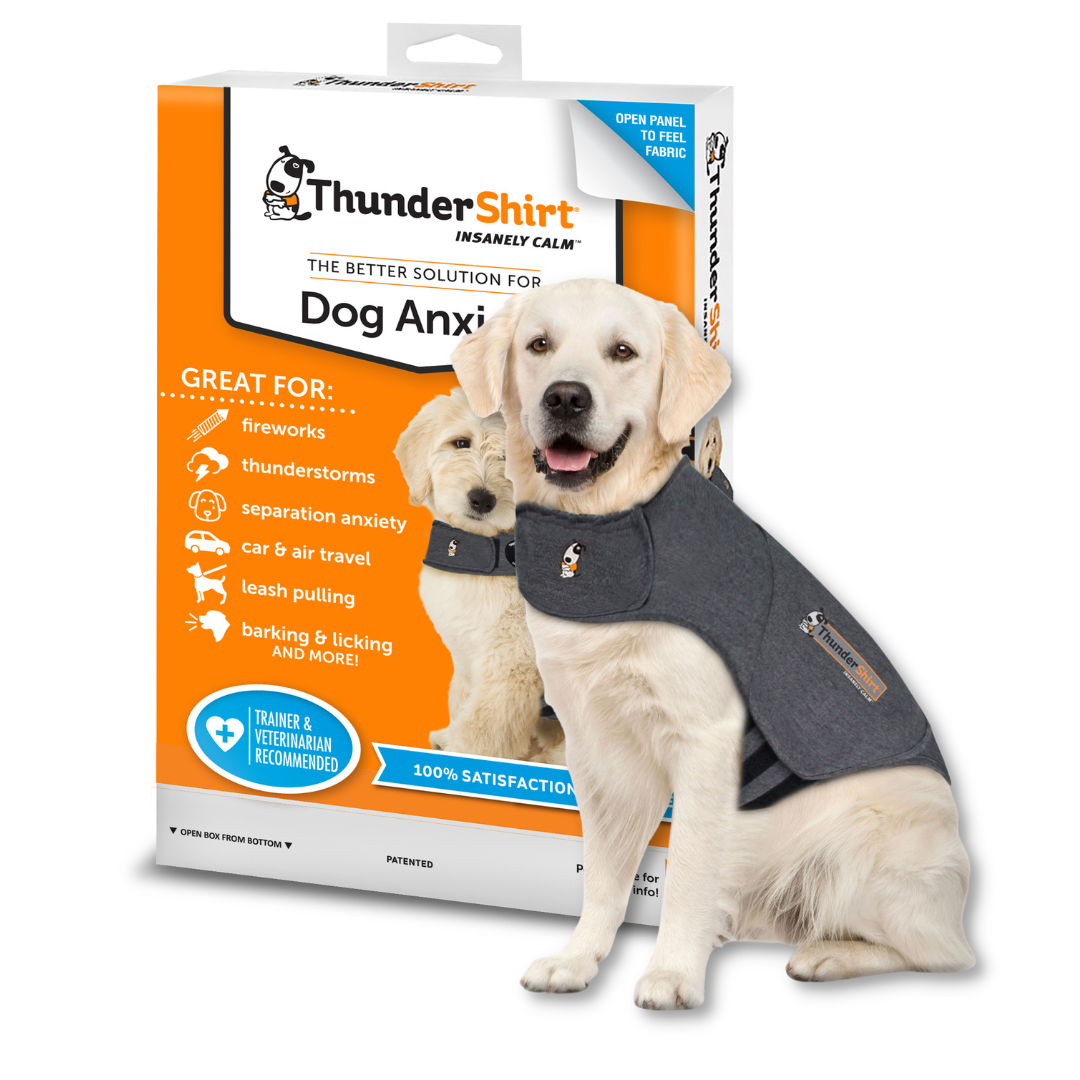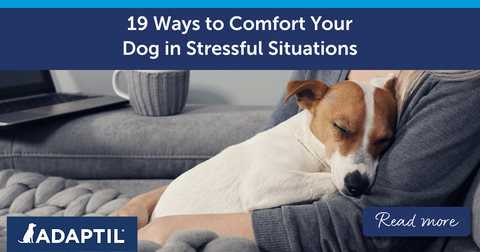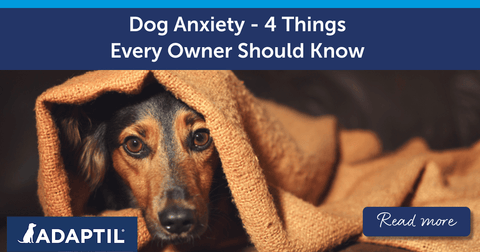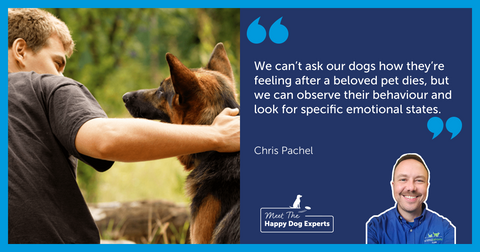Want to subscribe to our blog?

How Does A Senior Dog's Behaviour Change?
Written by Adaptil, published on April 18, 2023
No dog can stay an excitable puppy forever! As our dogs age and mature, there are lots of changes that you might see in their behaviour , and common changes that you should expect over time. However if you notice a change that is particularly uncharacteristic of your beloved pooch or sudden, make sure to get them checked by a vet just to make sure there are no underlying health conditions.
What behavioUr Should I Expect From My Senior Dog?
Waking and restless at night
Much like us humans, our furry friends can get restless as they get older. This can be for any number of reasons, from vision/hearing issues to sore joints to simply needing to be let out for a toilet break more often!
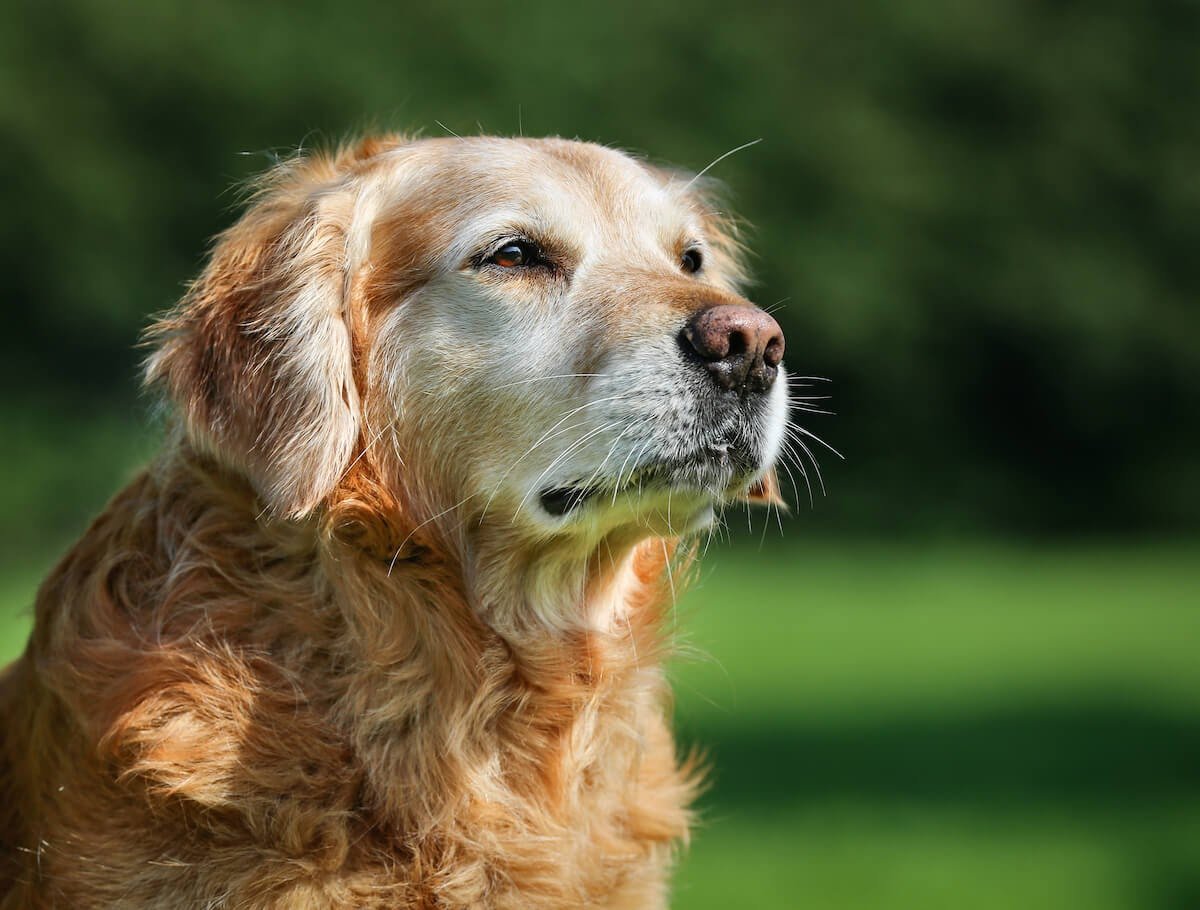
Make sure your dog is active throughout the day with plenty of exercise so that they're nice and sleepy when it's time for bed. Where you're able, try to modify exercise for your senior pooch, with shorter, more frequent walks to limit the impact on their joints.
Anxiety
Puppies tend to be a lot more adaptable to situations and cope with change much better than older dogs. As your furry friend matures, you may find that they become more anxious than they used to be. Keep an eye on their body language as this may give you an indication that they are stressed. You can help put your pooch at ease by sticking to a routine as much as possible and minimizing change.
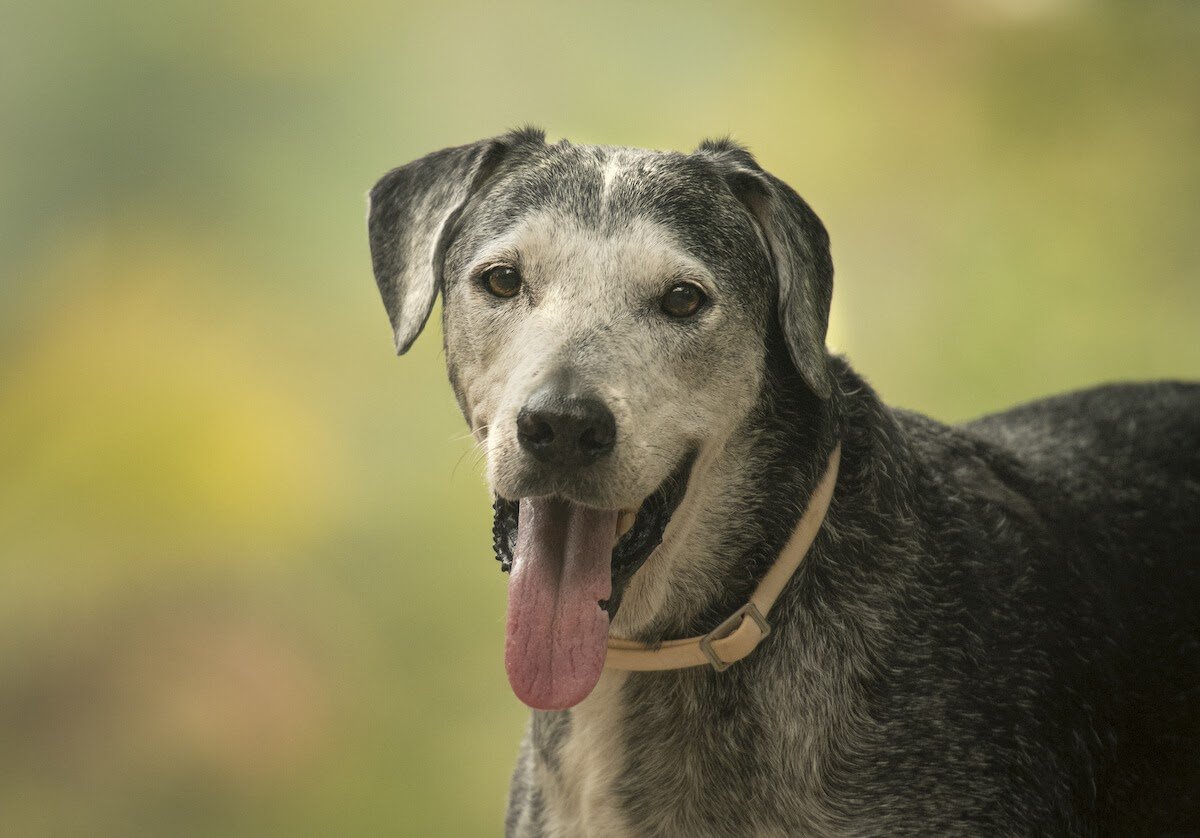
If you know your routine is likely to change imminently, try to introduce your dog to the new schedule in advance with small gradual changes so that they can grow accustomed to the new routine. Maybe even put some Mozart on in the background - after all, music has been proven to help keep dogs calm and feel reassured. If your pooch is still showing extreme signs of anxiety, try contacting a dog behaviourist for professional guidance on how to help.
Take a look at our Calming Music for Dogs Playlist on YouTube for 15 hours of relaxing sounds.
Vocalisations
Dogs can be very communicative, so the occasional bark or howl when they want attention or when the postman knocks at the door is nothing to be concerned about. However, if you notice that your furry friend is being more vocal than usual - whether it be barking, howling or whining - this is definitely something you should keep an eye on. Increased vocalisation can be due to disorientation, a change in your dog's hearing or could even indicate that your dog is in pain. If you've noticed a significant change in how vocal your doggo is, get them checked out by a vet to rule out any medical concerns.
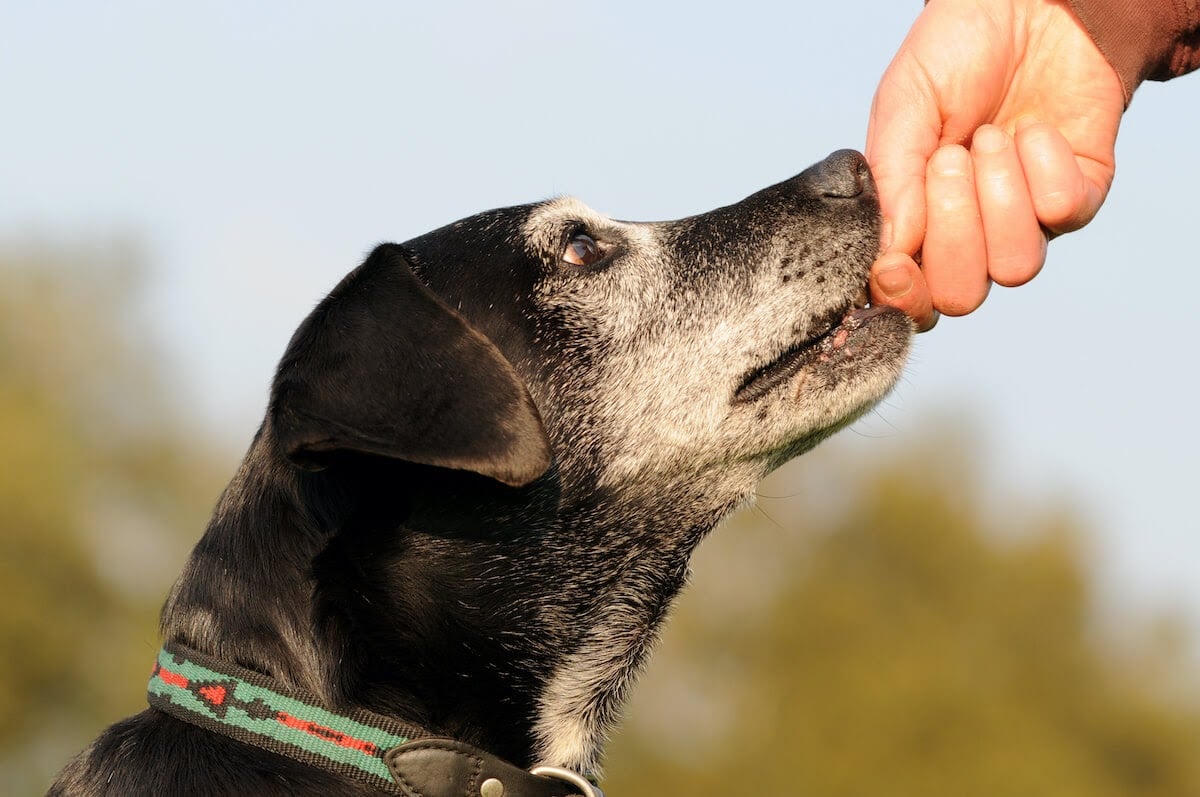
House Soiling
Have you noticed that your usually perfectly toilet-trained pooch has started soiling inside the house? As frustrating as it may be, your dog isn't being disobedient. As your dog gets older, you may find they need to be let out for the toilet more frequently, and they may have difficulty getting outside in time. Their usual way of 'asking' to go out may have changed as they've gotten older as, much like us humans, senior dogs can be forgetful. Another possible reason for house soiling could be increased anxiety. Try revisiting toilet training and adapting your schedule to allow for more frequent toilet breaks for your furry friend
Destructive Behaviours
Despite what you may think, your pooch didn't destroy your favourite slippers out of spite! Dogs often chew things as a way to alleviate anxiety. Destructive behaviour is not only distressing for us dog parents if valued items are damaged, but your pooch can also hurt themselves if they eat something that isn't safe for dogs. Try to redirect their chewing to dog-friendly items like a filled Kong or a chew and praise them for chewing these things to encourage the behaviour.
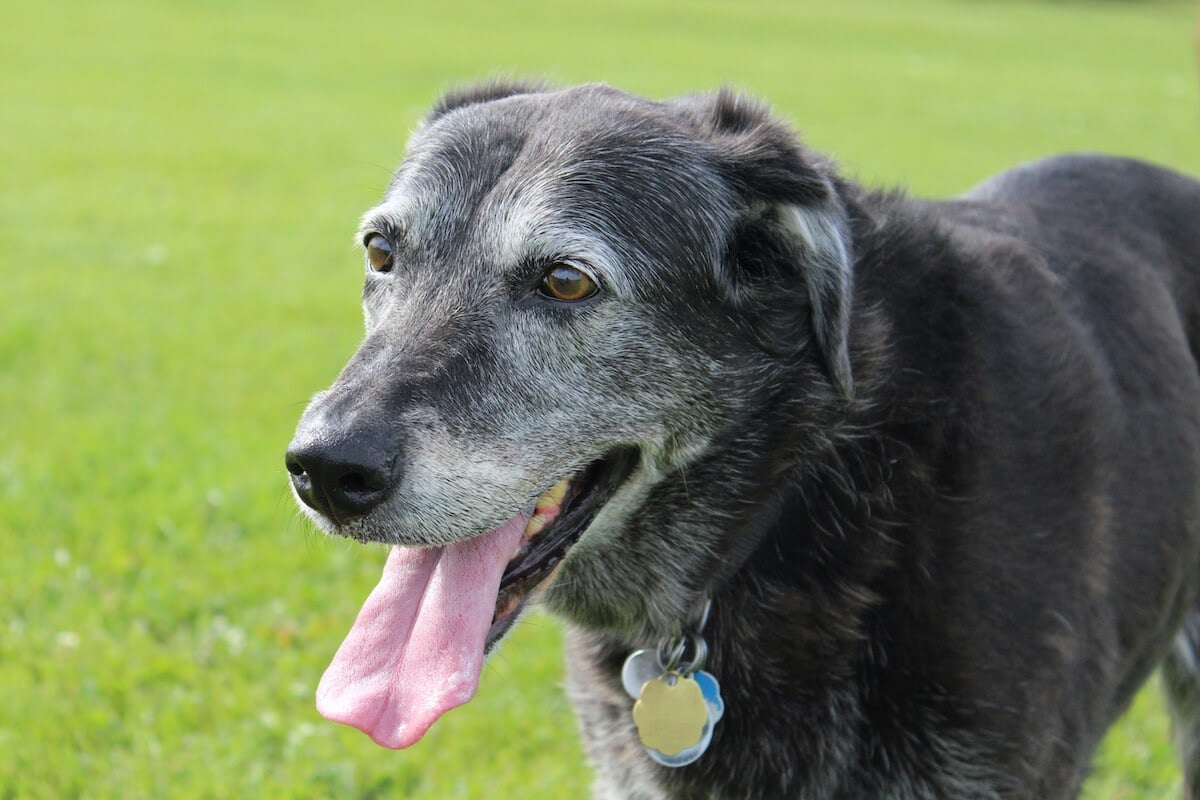
Aggression
You may notice as your dog gets older that they become more jumpy and aggressive. With reduced sense of smell, vision and hearing, older dogs are often less able to sense people entering their personal space. This can make them jumpier than normal and respond in ways to protect themselves. Try to use slow, careful movements when approaching your dog and contact your vet or an accredited behaviourist if you want to better understand how to help your elderly pooch.
Compulsive Behaviours
Older dogs may rely on repetitive behaviours as a means of coping with increased anxiety. This can include over-licking or nibbling an area of skin, or staring into space for periods of time. It may be worth getting them checked by a vet if you're concerned about the behaviour, as some compulsive behaviours can cause harm to your pet, such as nibbling at their skin which can make it red and sore.
Cognitive Dysfunction (CDS)
As our dogs get older, some have been known to develop a condition similar to human Alzheimer's disease known as cognitive dysfunction (CDS). Symptoms of CDS include:
- Disorientation (staring blankly, lack of responsiveness, problems recognising familiar faces)
- Changes in social interactions (lack of interest, irritability or conversely, being more clingy)
- Changes to sleep-wake cycles (awake during the night and sleeping more during the day)
- House soiling despite previous toilet training
- Changes in activity levels (lack of interest in playtime/walks, increased pacing)
If you've noticed some of these symptoms in your beloved pooch, get them checked out by a vet just to make sure there are no other health issues that may be causing changes in their behaviour. If your dog is diagnosed with CDS, your vet will be able to discuss with you how to best support your furry friend.
Support Your Senior Dog with ADAPTIL Calm
If your senior pooch is showing signs of stress, is a little more concerned and worried - or just needs a little more support, ADAPTIL Calm Home Diffuser may help. ADAPTIL releases messages that create a reassuring environment for a calm, happy pooch!
Following our expert tips will help to ensure your bond with your dog goes from strength to strength.
Make sure to join our community for weekly advice from our dog behaviour experts as well as product offers and competitions.
 Related Posts
Related Posts
Legal notice The information collected is intended for Ceva Santé Animale and the group in order to manage your requests. This information can be shared with service providers in order to organize their management. In accordance with the General Data Protection Regulations, you have the right to access, rectify and limit the processing of your data. You can also, in certain cases, object to the processing, withdraw your consent and request the deletion and portability of your data. For any request in relation to your personal data, please visit this page.




















